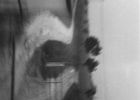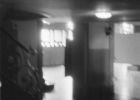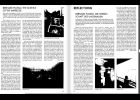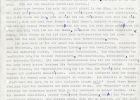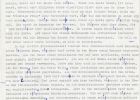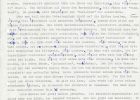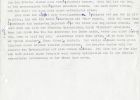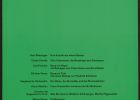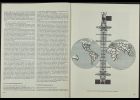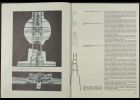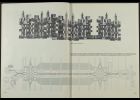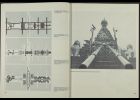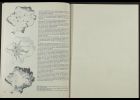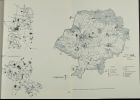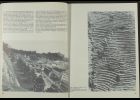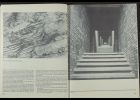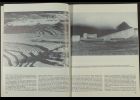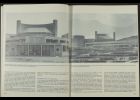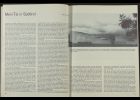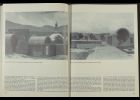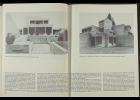Vilém Flusser
Articles of Vilém Flusser
Ontogenese wiederholt Phylogenese / Ontogenesis repeats Phylogenesis
“Ontogenesis repeats Phylogenesis” is the first introductory text of Flusser’s last book Menschwerdung (Becoming human) that was not completed because of Flusser’s sudden death in 1991. It was published in 1994 by Stefan Bollmann and Edith Flusser with the collaboration of Klaus Sander in Vom Subjekt zum Projekt /Menschwerdung (From Subject to Project / Becoming Human). Two other unpublished texts from this book project were already published in Flusser Studies 12 (“Pünktlich” and “Was man wollen kann”). In “Ontogenesis repeats Phylogenesis”, Flusser compares the development of the individual to that of the species, presenting his book project as a summa of his whole thinking. It is a text written in maturity, at the end of the second millennium after Christ’s death. Flusser describes himself ironically as the last Mohican who by writing his personal history, is also writing the history of the Mohican tribe, the Jews of Prague, most of whom were annihilated in the Holocaust.
Aberturas / Opening
“Openings” is the first of four essays written by Vilém Flusser regarding the work of Russian-Brazilian painter Samson Flexor (1907-1971). Published in “Suplemento Literário do Estado de São Paulo”, the article is marked by a heideggerian-existentialist style and presents what is probably Flusser's first concrete dive into a monstrous imaginary during his years in Brazil, where the philosopher lived between 1940 and 1973. Flusser's essays on Flexor are dated between 1967 and 71 and cover the “Bipeds” phase and the so-called “white” phase from the painter’s work. Later he would write one last essay, called “Flexor: in memoriam”, for the painter’s biography, written by Alice Brill in 1990. This Portuguese-English translation of “Aberturas” includes one photograph of Flexor with some of his "Bipeds" at the IX Bienal de São Paulo, in 1967.
Bernard Plossu: Die Wissenschaft des Ungenauen / Bernard Plossu: The Science of the Imprecise / Bernard Plossu: La science de l’imprécis
Between 1983 and his death in 1991, Flusser wrote thirteen articles for the magazine European Photography under the title “Reflections”. These were written by Flusser in German and English, and then edited by Derek Bennett. Among the photographers whose work appears in these articles, only one -- Bernard Plossu (b. 1945) -- is French. Flusser did not meet Plossu, but had the catalogue of Plossu’s exhibition “Intermediate Landscapes” (Centre Pompidou, 1988) in his library. The article was written in the same year as the author’s death.
This essay focuses on sharpness and blur, proximity and distance, and uses a photograph by Bernard Plossu to explore Abraham Moles' theories of imprecision. It was illustrated with four photographs by Bernard Plossu.
Bec’s Sulfanograde / Os sulfanogrados de Louis Bec / Les Sulfanogrades de Louis Bec
The essay starts out with the notion of simulation. Scientific observation works by simulating phenomena, that is, by creating models of “reality”. Within this horizon, it is difficult to tell “true” and “false” apart. Furthermore, it is no longer possible to maintain the difference between art and science. As simulated organisms that position themselves beyond the divide of art and science, Bec´s Sulfanogrades are an example of this new understanding.
Orthonature and Paranature
Orthonature Paranature is Flusser's third book in French, after La Force du Quotidien in 1973 and Le Monde codifié in 1974, and the last published in France during his lifetime. It was published in February 1978 by the Institut Scientifique de Recherche Paranaturaliste (ISRP; Scientific Institute for Paranaturalist Research), which was headquartered at the home of Louis Bec. The ten-page pamphlet for Orthonature Paranature reproduces the text of a lecture given by Flusser on October 9, 1976 on the occasion of Louis Bec’s exhibition Les Sulfanogrades, which were described as artificial organisms living in a hostile sulfur biome. Orthonature Paranature is framed by other Flusser texts and projects, including the cross-disciplinary roundtable Technologie et imaginaire (1975) – which presaged future French projects like Les Immatériaux (1985), the landmark exhibition at the Centre Pompidou organized by Jean-François Lyotard and Thierry Chaput – and Natural:Mind (1979). In Orthonature Paranature, Flusser argues that, rather than culture existing as the transformation of nature, the opposite is often true. Flusser defines “orthonature” as the commonly understood version of nature as universal and omnipresent, preexisting culture, and “paranature” as multiple: all the natures and cultures reduced to epistemological categories in order to make them understandable and manipulable. Orthonature Paranature clearly laid the ground for Flusser and Bec’s collaborative opus, Vampyroteuthis infernalis, which is often described as a work of “parabiology,” and Flusser’s “Curie’s Children” (1986-1992) column in Artforum. In this sense, Orthonature Paranature serves as a small but potent experiment around which Flusser’s ideas of nature, art, science, and philosophy hinged, and which would be elaborated upon in his writings until his death.

